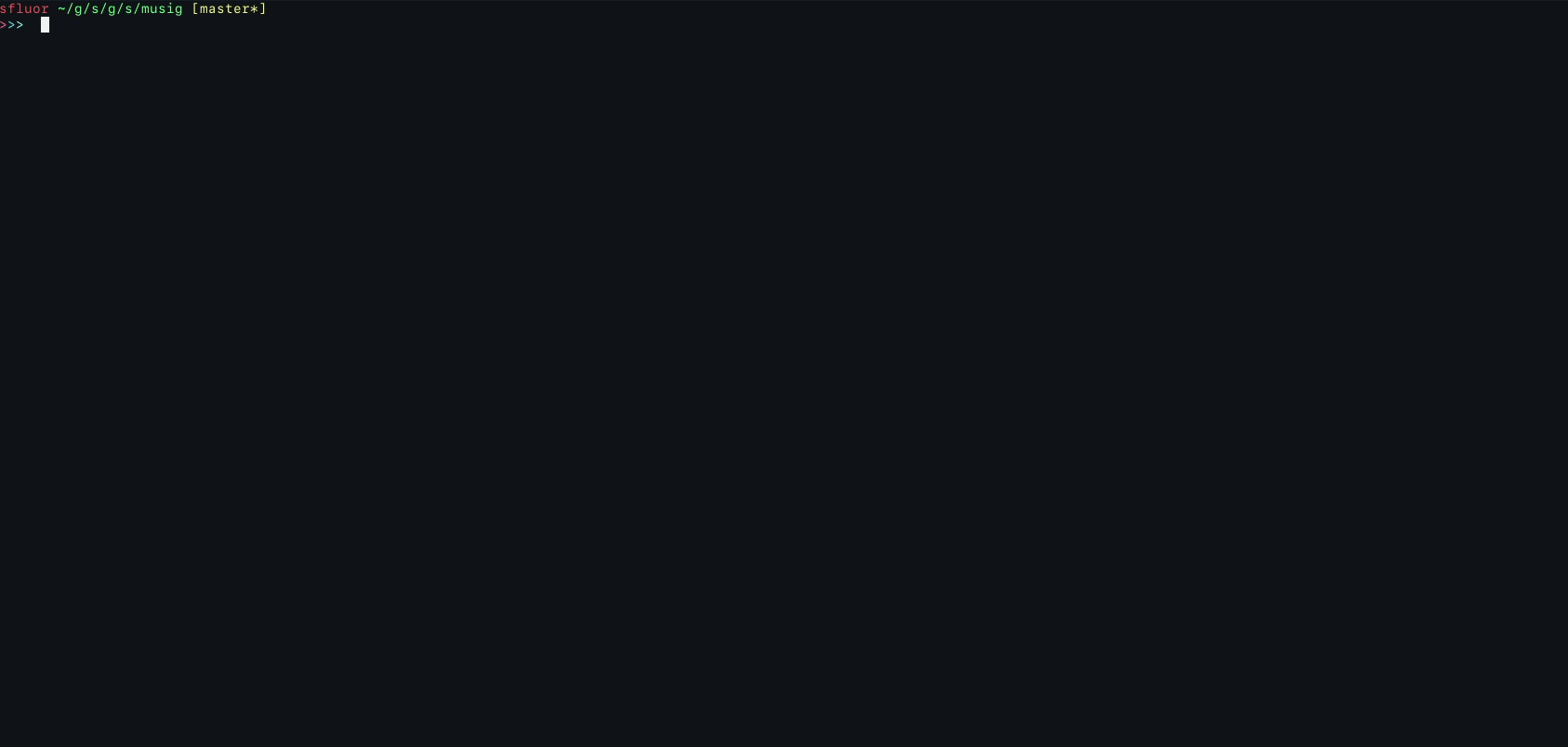A shazam-like tool that allows you to compute song's fingerprints and reverse lookup song names.
It's more or less an implementation of the shazam paper as described in this awesome article
You will need to have go on your computer (version > 1.11 to be able to use go modules).
You will also need to have portaudio installed (brew install portaudio on macOS, apt install portaudio19-dev on Ubuntu / Debian, for other distributions you can search for the portaudio package), it is required for the listen command that listens on your microphone to match the recording against the database.
To build the binary:
git clone git@github.com:sfluor/musig.git
cd musig
makeYou will then be able to run the binary with:
./bin/musig help
To do some testing you can download wav songs by doing make download.
Load them with ./bin/musig load "./assets/dataset/wav/*.wav"
And try to find one of your song name with:
./bin/musig read "$(ls ./assets/dataset/wav/*.wav | head -n 1)"
You can also try to use it with your microphone using the listen command:
./bin/musig listen
If you want to record a sample and reuse it multiple times after you can also use the record command:
./bin/musig record
For more details on the usage see the help command:
A shazam like CLI tool
Usage:
musig [command]
Available Commands:
help Help about any command
listen listen will record the microphone input and try to find a matching song from the database (Ctrl-C will stop the recording)
load Load loads all the audio files matching the provided glob into the database (TODO: only .wav are supported for now)
read Read reads the given audio file trying to find it's song name
record record will record the microphone input and save the signal to the given file
spectrogram spectrogram generate a spectrogram image for the given audio file in png (TODO: only .wav are supported for now)
Flags:
--database string database file to use (default "/tmp/musig.bolt")
-h, --help help for musig
Use "musig [command] --help" for more information about a command.
To run the tests you can use make test in the root directory.
- improve the documentation
- support for
mp3files
